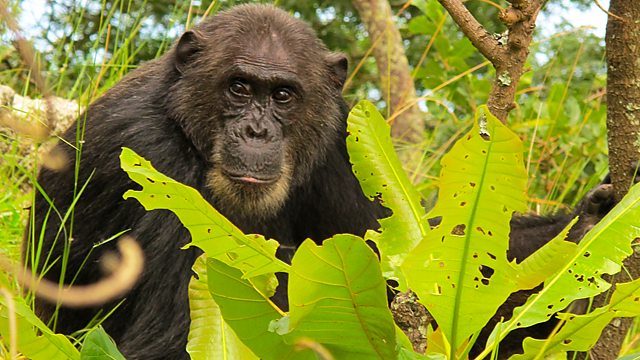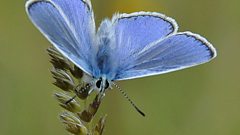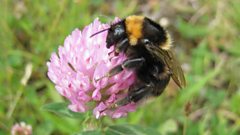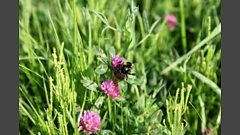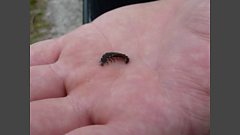Episode 1
Brett Westwood returns for more on wildlife conservation, beginning with a look back at the summer of 2012. How has one of the wettest summers on record affected our wildlife?
Saving Species is back for another year of live broadcasting about the world of wildlife conservation, presented by Brett Westwood. We kick off the first programme with look back at the summer of 2012. At the time this programme is broadcast many of our summer migrants will already be heading south to Africa. But how did they fare over the summer? This summer has been one of the wettest on record, has this affected our wildlife? We look at some of the winners and losers in the battle for survival.
Also in the programme - Saving Species heads to Dungeness in Kent where a long term project is underway to return the short haired bumblebee to Britain. This formerly widespread bee was last recorded in 1988 and declared extinct in 2000. Queen bees collected from Sweden have been released in specially prepared farmland and Joanna Pinnock was there to witness this memorable day.
At the opposite end of the country, Chris Sperring reports from Devon where he joined a public night-time safari to look for one of our most enigmatic and enlightening beetles, the glow-worm. Devon last conducted a country wide survey in 1999. Glow worms have declined across the rest of Britain, but have Devon's glow worms declined since the last survey was completed?
Also in the programme - News from around the world with our regular news reporter, Kelvin Boot. And we'll update you on the activities of the Open University's iSpot.
Last on
More episodes
Previous
You are at the first episode
Next
Clips
-
![]()
How has the wet summer affected butterflies?
Duration: 03:38
-
![]()
Short-haired Bumblebees and Glow worms
Duration: 00:44
Reintroduction of Short-haired bumblebee
Cuckoo Tracking
The number of breeding cuckoos in the UK has dropped significantly over the last 25 years, but it is not clear whatÌýhasÌýcausedÌýthis decline.ÌýWhilst the Cuckoo has been well studied during the breeding season here in the UK, once they head off on migration very little was known about the routes they take or where in Africa they spent the winter months. In 2011Ìýthe BTOÌýattached satellite-tracking devices to Cuckoos from Norfolk to find out more about their important stop-over sites and wintering destinations on the way to and from .
Glow worms
As part of their Glow worm Campaign 2012, the Devon Wildlife Trust are asking members of the public to complete a survey to record their own glow worm sightings. You can find out more about the campaign .
Ìý
Watch: Female glow worms

Broadcasts
- Tue 4 Sep 2012 11:00Â鶹Éç Radio 4
- Thu 6 Sep 2012 21:00Â鶹Éç Radio 4
The Open University
Get closer to the species with The Open University
